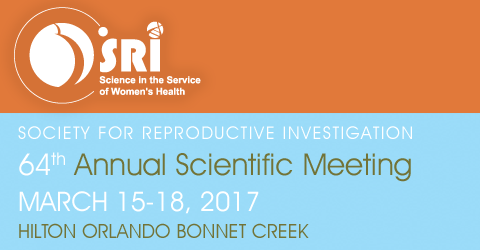2017 Plenary Speakers
 Suchi Saria, PhD
Suchi Saria, PhD
Thursday, March 16
8:10 a.m. - 9:00 a.m.
President's Distinguished Lecture I
Leveraging "Big Data" for Individualized Care
Broadly my interests span machine learning, computational statistics, and its applications to domains where one has to draw inferences from observing a complex, real-world system evolve over time. The emphasis of my research is on Bayesian and probabilistic graphical modeling approaches for addressing challenges associated with modeling and prediction in real-world temporal systems. In the last seven years, I have been particularly drawn to problems that involve modeling data from sensing platforms and electronic health records, as I think these present a tremendous opportunity for high impact work. See my recent article on this topic. Also, this (undeservingly) generous article by the ACM's XRDS Crossroads (the ACM Magazine for Students) highlights some of the work in our lab.
Prior to joining Johns Hopkins, I did my PhD at Stanford with Dr. Daphne Koller. I also spent a year at Harvard University collaborating with Dr. Ken Mandl and Dr. Zak Kohane as an NSF Computing Innovation Fellow. While in the valley, I also spent time as an early employee at Aster Data Systems, a big data startup acquired by Teradata. I am an advisor to Patient Ping. I'm also an advisor on data quality and analysis to CancerLinQ, a learning health system by the American Society of Clinical Oncology. I'm originally from Darjeeling, India. I can be bribed with good tea.
 Stephen Quake, PhD
Stephen Quake, PhD
Friday, March 17
8:00 a.m. - 9:00 a.m.
President's Distinguished Lecture II
Molecular Stethoscope in Pregnancy
Professor Quake's interests lie at the nexus of physics, biology and biotechnology. His group pioneered the development of Microfluidic Large Scale Integration (mLSI), demonstrating the first integrated microfluidic devices with thousands of mechanical valves. This technology is helping to pave the way for large scale automation of biology at the nanoliter scale, and he and his students have been exploring applications of lab-on-a-chip technology in functional genomics, genetic analysis, and structural biology. Professor Quake is also active in the field of single molecule biophysics.
 David Haig, PhD
David Haig, PhD
Saturday, March 18
8:00 a.m. - 9:00 a.m.
President's Distinguished Lecture III
Maternal-Fetal Conflict and Cooperation in Human Pregnancy
David Haig obtained his degrees from Macquarie University in Sydney, Australia. After a two-year postdoc In Oxford he came to Harvard University where he has been a professor in the Department of Organismic and Evolutionary Biology since 1995. His interest in maternal-fetal relations developed from studies of plant life cycles. He still misses kookaburras.

